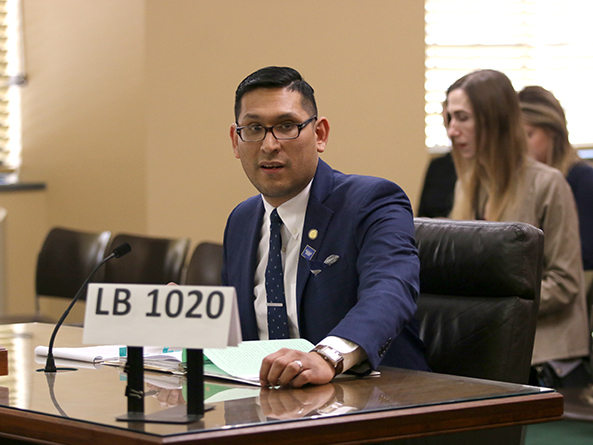Expansion of housing discrimination prohibition considered
Source of income would be a protected category in state housing discrimination law under a bill heard by the Judiciary Committee Jan. 29.

Under the bill, lawful source of income would include, but would not be limited to, income derived from Social Security, child support, foster care subsidies, alimony, veteran benefits or any other form of federal, state or local public general assistance or housing assistance.
LB1020, sponsored by Omaha Sen. Tony Vargas, would prohibit housing discrimination based on lawful sources of income.
The effects of redlining—a systematic housing discrimination practice—still can be seen in Omaha, Vargas said. Minority populations remain concentrated in northeast and south Omaha, he said, but some areas in west Omaha are more than 90 percent white.
Lack of access to resources is a much larger issue in areas with a history of redlining, Vargas said, which makes it difficult for residents to break the cycle of poverty.
“This is what intergenerational poverty is,” Vargas said. “And the state of Nebraska is perpetuating it by allowing [housing] discrimination based on source of income.”
Supporting the measure was Taylor Hayes, a University of Nebraska College of Law student who specializes in tenants’ rights.
LB1020 would protect a wide range of individuals, he said, including the elderly, people with disabilities, single parents and veterans.
“[Where someone lives matters] because a parent needs to know their child can safely walk to school each morning. It matters because city buses only stop in certain locations. It matters because in some towns, there’s only one landlord and if that landlord won’t accept your source of income, you can’t rent [in that town],” Hayes said.
Erin Feichtinger, representing homeless services organization Together Omaha, also supported the bill. Many of her clients describe the process of applying for housing assistance as “heartbreaking, demoralizing and hopeless,” she said.
“If you make it through the entire, arduous process of qualifying for housing assistance … and you want to move to a neighborhood that has good schools, low crime, nice neighbors and [have] the American dream, but you want to use your voucher in Omaha—tough luck,” Feichtinger said.
Gene Eckel, representing the Nebraska Association of Commercial Property Owners, spoke in opposition to LB1020. Mandating that landlords accept housing assistance and follow stringent inspection standards only would increase costs for landlords, he said, which then would create fewer affordable housing options.
“We believe that because Congress [originally] did not make [source of income] a protected class, Nebraska should continue to follow that,” Eckel said. “We believe it should be participated in, not mandated.”
Also opposing the bill was Dustin Antonello, representing the Lincoln Independent Business Association. Federal housing assistance—commonly referred to as “Section 8”—imposes strict annual inspections on property owners, he said, even if a tenant does not move out.
“Although LIBA supports making it easier for low-income residents to utilize federal, state or local housing benefits, we do not support mandating rental property owners to accept Section 8 housing vouchers because they often create hidden financial regulatory burdens for property owners,” Antonello said.
The committee did not take immediate action on the bill.


